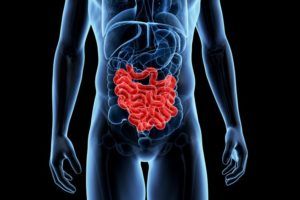Types of disease associated with the Gastrointestinal System!

What are Gastrointestinal Diseases?
Gastrointestinal diseases affect the gastrointestinal (GI) tract which runs from the mouth to the anus. In Gastrointestinal diseases, you may have digestive issues, discomfort, your bowel may look abnormal and also doesn't work properly.
We all experience digestive problems at some point of our life. Gastrointestinal symptoms vary from very mild to serious. If you’re experiencing the symptoms over and over again or if they cause you significant discomfort, your body could be trying to tell you that you have a digestive condition.
Here are the following diseases associated with Gastrointestinal System-
Constipation
Constipation is generally described as having fewer than three bowel movements a week. Occasional constipation is very common, some people experience chronic constipation that can interfere with their ability to go about their daily tasks. Chronic constipation may also cause people to strain excessively in order to have a bowel movement. Constipation causes you to strain during a bowel movement. It may cause anal problems such as fissures and hemorrhoids. Constipation can sometimes be a sign that you have a more serious medical condition.
It may cause anal problems such as fissures and hemorrhoids. Constipation can sometimes be a sign that you have a more serious medical condition.
Symptoms
Irritable bowel syndrome (IBS)
IBS also know as spastic colon, irritable colon, or nervous stomach. It is a functional condition where your colon muscle contracts more or less often than “normal.”
Symptoms of IBS include:
Treatment includes:
Hemorrhoids
Hemorrhoids are swollen veins in your lower rectum. Internal hemorrhoids are usually painless, but tend to bleed. External hemorrhoids may cause pain. Hemorrhoids (HEM-uh-roids), also called piles, are swollen veins in your anus and lower rectum, similar to varicose veins.
Symptoms
Signs and symptoms of hemorrhoids usually depend on the type of hemorrhoid.
External hemorrhoids
These are under the skin around your anus. Signs and symptoms might include:
Internal hemorrhoids
Internal hemorrhoids lie inside the rectum. You usually can't see or feel them, and they rarely cause discomfort. But straining or irritation when passing stool can cause:
Treatment includes:
Anal fissures
An anal fissure is a tear in the lining of the anus or anal canal (the opening through which stool passes out of the body). The fissure can be painful and may bleed.
The most common cause of an anal fissure is the passage of very hard stools. The crack in the anal lining exposes the underlying muscles that control the passage of stool through the anus and out of the body. An anal fissure is one of the most painful problems because the exposed muscles become irritated from exposure to stool or air, and leads to intense burning pain, bleeding, or spasm after bowel movements.
Perianal Abscesses
Perianal abscesses, also a structural disease, can occur when the tiny anal glands that open on the inside of your anus become blocked, and the bacteria always present in these glands causes an infection. When pus develops, an abscess forms. Treatment includes draining the abscess, usually under local anesthesia in the healthcare provider’s office.
Anal Fistula
An anal fistula a structural disease – often follows drainage of an abscess and is an abnormal tube-like passageway from the anal canal to a hole in the skin near the opening of your anus. Body wastes traveling through your anal canal are diverted through this tiny channel and out through the skin, causing itching and irritation. Fistulas also cause drainage, pain and bleeding.
Colon polyps and cancer
A colon polyp is a small clump of cells that forms on the lining of the colon. Most colon polyps are harmless. But over time, some colon polyps can develop into colon cancer, which may be fatal when found in its later stages. Anyone can develop colon polyps. You're at higher risk if you're 50 or older, are overweight or a smoker, or have a personal or family history of colon polyps or colon cancer.
Symptoms
Can gastrointestinal diseases be prevented?
Many diseases of the colon and rectum can be prevented or minimized by maintaining a healthy lifestyle, practicing good bowel habits and getting screened for Gastrointestinal conditions like cancer.
A colonoscopy is recommended for average-risk patients at age 45. If you have a family history of colorectal cancer or polyps, a colonoscopy may be recommended at a younger age.
Dr Dhaval Mangukiya is one of the best gastro surgeon of Surat and has started his private surgical services in the field of Gastro-Intestinal & Hepato Pancreato Biliary Surgery since January 2013 at Surat as visiting consultant in all major hospitals.
We can help you and your family to restore optimal digestive health. We are conveniently located in SIDS Hospital and Research Center J J Empire Building, Opp Gandhi College. For more information or to schedule an appointment, contact us today!
